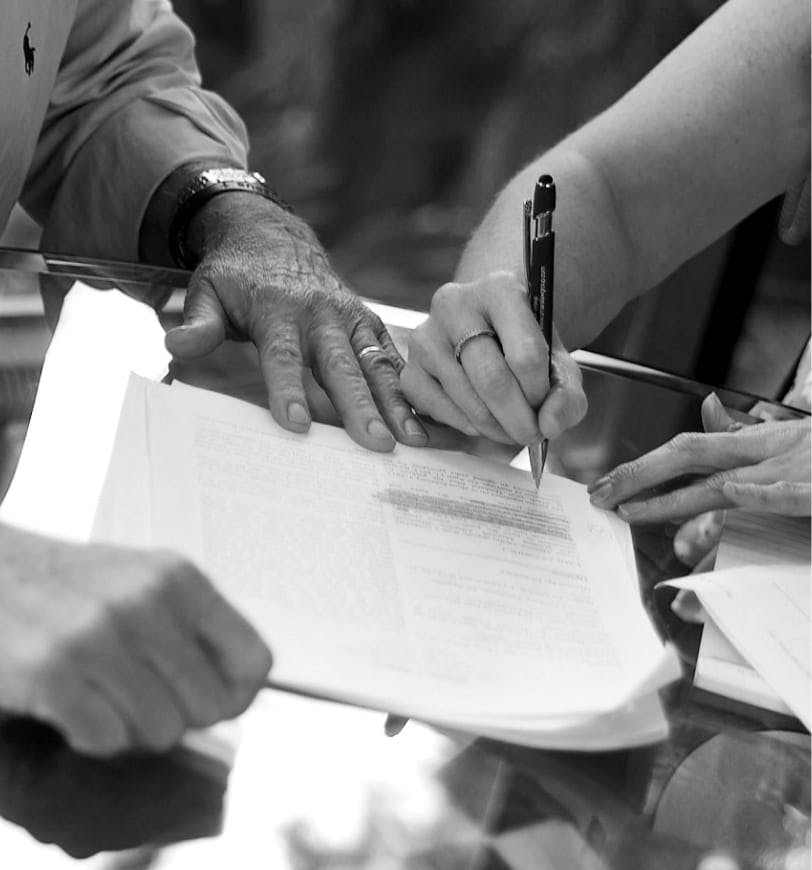There are four types of driving under the influence (DUI) tests in Florida: breath, blood, urine, and field sobriety tests. Looking for legal counsel following a DUI test? Contact the O’Mara Law Group for experienced legal assistance. When you are suspected of driving under the influence (DUI), the law enforcement officer may ask you to perform one or more DUI tests, such as breath, blood, urine, and field sobriety tests. These tests are designed to reveal whether you are intoxicated with alcohol or other drugs, as well as the level of intoxication. Have you recently taken a DUI test in Florida? The O’Mara Law Group has decades of experience assisting our clients when it comes to understanding the legal limit for blood alcohol concentration levels. We can also assist you in crafting potential defenses that could challenge the test result’s validity or admissibility. To better understand your predicament, speak with a skilled DUI lawyer in the Orlando, Florida area.

DUI Breath Test in Florida
Perhaps the best-known DUI test involves blowing into a breathalyzer, which determines your blood alcohol level by measuring the alcohol concentration in your lungs.
Can You Refuse a Breathalyzer Test in Florida?
No, you cannot refuse a breathalyzer test in Florida. If you do so, your license will automatically be suspended.
According to Section 316.1932(1)(a)1.a. of the Florida Statutes, anyone who obtains a driver’s license in Florida gives implied consent to undergo a breath alcohol test.
What Happens if You Refuse a Breathalyzer Test in Florida?
If you refuse a breathalyzer test in Florida, your license will be immediately suspended for 12 months. If you have previously refused a a DUI test, your license will be suspended for 18 months.
What Is the Breathalyzer Legal Limit in Florida?
The breathalyzer’s legal limit is 0.08 percent. Exceeding the legal limit may result in a DUI.
Possible Defenses Following a DUI Test
A reading of 0.08 percent or higher doesn’t have to result in a DUI conviction. A skilled lawyer may use the following defenses to challenge the admissibility or validity of a breathalyzer test:
- The breathalyzer may have malfunctioned. A breathalyzer can often give the wrong result. If you are on a ketogenic diet, your body may create acetones and isopropanol, which can give you a false positive alcohol breath result. People with large amounts of mouth alcohol, such as those with dentures, may also receive false positive readings.
- The breathalyzer may not have been properly calibrated. Those maintaining the breathalyzer must regularly calibrate the breathalyzer to use it properly.
- The officer may not have used the breathalyzer properly. The officer administrating the breath test may not have been properly trained in breathalyzer usage.
- The officer may have exercised their law enforcement powers improperly. Evidence can be suppressed if the officer exercised their law enforcement powers against Florida law.
At the O’Mara Law Group, we can work with you to analyze your case to determine which defense is strongest for your case.

DUI Blood Test
A DUI blood test is also a common way to determine the amount of alcohol and other chemical substances in a driver’s system. Under Sections 316.1932 and 316.1933 of the Florida Statutes, an officer may request a blood test in one of the following scenarios:
- When the DUI suspect agrees to provide a blood sample
- When a DUI suspect appears for treatment at a clinic, hospital, or other medical facility and it is impossible or impractical to administer a urine or breath test
- When a healthcare provider who is treating someone injured in an automobile accident gives the patient a blood test and tells the police that the patient’s blood alcohol level is over the legal limit
- When a DUI suspect was involved in a crash that caused serious bodily injury or death — in such scenarios, authorities may use “reasonable force” to obtain a blood test from the suspect
Can You Refuse a DUI Blood Test in Florida?
No, you cannot refuse a DUI blood test in Florida.
Per Section 316.1932(1)(a)1.a. of the Florida Statutes, by getting a driver’s license in Florida, you have already given implied consent to submit to a blood alcohol test when required to do so. Refusal to submit to a DUI blood test will immediately suspend your license for 12 months or 18 months if you have a prior refusal.
What Is the Blood Test Legal Limit?
The blood test legal limit is 0.08 percent. A level exceeding 0.08 percent may result in a DUI.
DUI Blood Tests Potential Defenses
Even if your blood alcohol concentration is 0.08 percent or higher, a skilled attorney can challenge the admissibility or validity of a DUI blood test.
If the prosecution cannot prove that the test was conducted in compliance with state law, then the results may be suppressed for lack of evidentiary reliability. Examples include:
- Improper collection: The technician who takes the sample must be adequately certified or trained. The technician must also store the blood in a glass tube with the right amount of anticoagulants and preservatives to ensure the sample is not contaminated.
- Lack of refrigeration: The technician must refrigerate the sample if the sample will be analyzed within seven days. If the sample will be analyzed within 30 days, the technician must arrange for it to be mailed or hand-delivered for analysis.
- Contamination by alcohol: Florida law requires technicians to wash the draw spot with a nonalcoholic cleanser.


DUI Urine Test in Florida
A law enforcement officer may use a urine test to identify the presence of controlled substances in a DUI suspect’s body. Per State v. Linaje, an officer may only request a urine sample if:
- The DUI suspect was arrested for an offense committed while under the influence of a controlled substance to the extent that their normal faculties were impaired, and
- The officer had reasonable suspicion to believe that the suspect was under the influence of controlled substances to the extent that their faculties were impaired
Can You Refuse a DUI Urine Test in Florida?
No. Like blood and breath tests, urine tests are mandatory according to Section 316.1932(1)(a)1.a. of the Florida Statutes. If you don’t submit, the state will suspend your license for 12 months or 18 months if you have previously refused a DUI test.
Get the Legal Help Your Need Now.

What Our Clients Say

Compassionate Assistance
The Mark O’Mara Law Firm was a wonderful place and outstanding. Mark was very helpful and always made time for me, answering all my questions. But my hero was Susan Staggs, who prepared all of my paperwork. She is a real magician who takes it seriously.
Exceptional Service
Mark O'Mara and his office provided excellent service, demonstrating professionalism and personal attention to all my details of my cases. He is one of the best in his field as a criminal and family attorney. He is honest, direct, and he always does his best for his client.
Support in Family Law
Mr. O’Mara and his entire staff, especially Alyssa, were absolutely impressive with everything. Very efficient and punctual; their understanding of every little detail was way beyond expectations. Honestly, this law group has made a major difference in my life.
Expert Guidance in Family Law
I can't thank Mr. Thompson and his team enough for their outstanding support. From the very first meeting, Sarah was incredibly knowledgeable and attentive. They handled every aspect of my case with such professionalism and care. This legal team truly changed my life.
Dedicated to Fighting Your Cause
Knowing Mark O’Mara as an attorney who has represented me for the past 23 years and has also been a friend… I can say that Mark is not only dedicated to fighting your cause, but his team shares that same dedication. When you call his office the girls at the front desk always strive to assist you. As for the rest of his team they are committed to winning the best...
Nothing Short of Amazing
Mr O’Mara and the entire staff were nothing short of amazing. Mr. O’Mara knew exactly what we needed to do and has even offered additional advice for any future risks. This was all new for me and they walked me through everything step by step and were very patient and most of all responsive and caring. THANK YOU!!!
They Are Top Notch!!!!
I cannot express the gratitude I have for Mark O’Mara, Susan and their firm. I had a very difficult custody situation and they guided me towards the best decisions and fought for me. I highly recommend O’Mara Law Group. They are top notch!!!!
Such a Professional and Personable Firm.
Such a professional and personable firm. Everyone treated me with respect throughout my entire process. I absolutely dread ever needing the services of an attorney again but I would certainly go straight back to Mark. Susan was awesome and she totally got me from day one. I can’t begin to say how helpful that was for me. Thank you to the entire team!!
I Am Truly Proud
By far, the best person, if you ever need an attorney and someone who will always be there for you. I am truly proud to have Mark as my attorney, advisor and friend. Thanks Mark and Alyssa. Michael Hoffman, Attorney at Law and C.P.A.
Way Beyond Expectations
Mr. O’Mara and his entire staff especially Alyssa were absolutely impressive with everything. Very efficient and punctual and the overall understanding of every little detail was way beyond expectations. Honestly this law group has made a major difference in my life and helped me through many obstacles associated with owning multiple businesses and continue to do so in...
They Were Ready to Fight the Fight
When I went in for my consultation with Mark and Caitlin, I was in a state of total devastation. They lifted the burden and took away the stress of my situation by making me feel completely taken care of. They were ready to fight the fight I didn’t have the emotional strength to do so on my own. I have and will continue to recommend their law group to anyone needing le...
Mark Omara was GREAT
Mark has represented me and I hate to say 2 family members of mine, all 3 times mark has delivered success. He has to be the best lawyer I have ever dealt with, he is caring of the situation and of your fears in facing legal matters , he made us feel comfortable , safe and protected. Surprisingly he never made me feel down on myself for stupid things I created that lead to h...
Field Sobriety Test in Florida
A law enforcement officer may also request a DUI suspect to take field sobriety tests when the officer has reasonable suspicion that the suspect is under the influence.
What Happens During a Field Sobriety Test?
Field sobriety tests are designed to measure how your faculties have been affected by alcohol and drugs. They are generally less accurate than chemical tests like breathalyzer, blood, and urine tests. Standard field sobriety tests include:
- One-leg stand test: You will balance on one leg for an extended period.
- Horizontal gaze nystagmus (HGN): You will move your eyes to the side from the center point.
- Walk and turn test: You will take nine heel-to-toe steps in a straight line. After that, you will turn around and repeat in the opposite direction.
Do You Have to Take a Field Sobriety Test in Florida?
You are not legally required to submit to field sobriety tests. In other words, you can refuse to participate and tell the officer that your lawyer told you to decline. However, your refusal may trigger increased suspicion of intoxicated behavior.

O'Mara Law Group Can Help With a DUI Arrest
If you or a loved one have been arrested after taking a DUI breath, blood, urine, or field sobriety test, call the O’Mara Law Group for skilled legal counsel. We have decades of experience helping Floridians get various types of DUI charges reduced or dropped. Contact O’Mara Law for experienced representation by filling out our online form or calling our Orlando office at (407) 988-0350.

